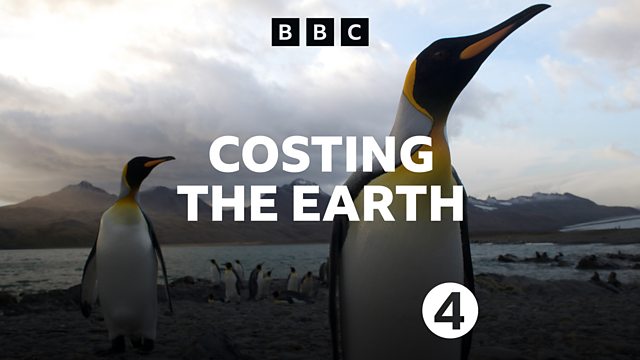Food Versus Fuel
One of the key arguments against biofuels is the potential for food shortages as more land is given over to growing energy crops. Tom Heap investigates.
FOOD VERSUS FUEL
One of the most hotly debated environmental topics of the year is whether the burgeoning bio fuels industry poses a threat to the world’s food supplies if we use increasing amounts of grain to fuel our cars rather than feed ourselves?
In this edition of Costing the Earth we examine the argument more closely and look at some of the other reasons for the rise in food prices the world is currently experiencing.
The United States has seen the biggest recent switch to bio-fuels. Spurred on by fears over security of oil supply from the Middle East, grain is being converted to gasoline on a vast scale. This conversion is widely believed to have been responsible for one of the first flashpoints of the food versus fuel debate – the tortilla riots in Mexico.
People were angered by more expensive corn flour for their national food stuff and blamed rising maize prices on competition from bio-fuels. There was some truth in this but the short term picture is very misleading. Over the last fifteen years cheap American grain had ruined the Mexican maize business, millions of farmers had left the land, leaving the country hooked on imports. The Governments Chief Scientific adviser Sir David King, while having some concerns about the targets set by the European Union on bio fuels, also talks of a dependency created by rich countries exporting cheap food surpluses to developing countries that had often crushed their own farming industries. Jonathan Scurlock, advisor on renewable energy to the National Farmers Union is one of many who believe that biofuels will actually help farmers in poorer countries. He believes greater demand will create investment in agriculture and bring more land into production.
But is there enough land globally to support this increased production? At the moment, yes, seems to be the answer. Globally there are thousands of hectares of spare land that could be put back into production without threatening either food production or the environment. Earlier this year, the environment group WWF reported that there is plenty of fallow or idle land that could be made available in countries like Indonesia, as long as that land is properly managed. Eastern Europe also has the potential to grow more grain.
Problem solved then? As usual, it’s not that simple – but one thing is: bio fuels will only succeed if the public believes they’re doing some good. Being environmentally and ethically sound is their brand image, their unique selling point. With all the publicity they’re getting, the industry is well aware of the challenge ahead.
Last on
More episodes
Previous
Broadcasts
- Thu 4 Oct 2007 21:00Βι¶ΉΤΌΕΔ Radio 4
- Fri 5 Oct 2007 15:00Βι¶ΉΤΌΕΔ Radio 4
What has happened to the world's coral?
Podcast
-
![]()
Costing the Earth
Fresh ideas from the sharpest minds working toward a cleaner, greener planet



